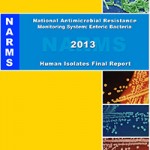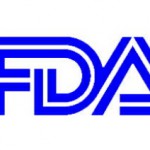United States Senators Elizabeth Warren (D-MA), Dianne Feinstein (D-CA), and Kirsten Gillibrand (D-NY) sent a letter to the Interagency Task Force for Combating Antibiotic-Resistant Bacteria, asking again for information on how that body plans to address critical gaps in the FDA policies on overuse of antibiotics in food animals. A letter was sent in December 2014, but they have not received a formal response. The letter states, "we are extremely disappointed that we have not received a formal response form your office. Antibiotic-resistant bacteria present a major public health threat and public health experts agree that antibiotic resistance stems not only from antibiotic use in human medicine, but also from use in animals." The senators asked for a response within 30 days. They … [Read more...]
FDA Releases NARMS Report on Antibiotic Resistance
The Food and Drug Administration (FDA) has released its 2012-2013 National Antimicrobial Resistance Monitoring System (NARMS) Integrated Report. The report focuses on major food born pathogens that are resistant to antibiotics important in human medicine, and on multidrug resistant pathogens. NARMS screens for non-typhoidal Salmonella, Campylobacter, E. coli, and Enterococcus. Salmonella and Campylobacter are the leading causes of bacterial food poisoning. The report reveals "mostly encouraging findings, with some areas of concern." About 80% of human Salmonella isolates are not resistant to any of the tested antibiotics. This number has not changed in the past 10 years. In addition, Salmonella multi-drug resistance has not changed, and the number of multi-drug resistant Salmonella … [Read more...]
Antibiotic Resistance Increasing for Some Pathogens, CDC Reports
Some types of Salmonella and other bacteria are increasing their resistance to antibiotics, according to a new report from the National Antimicrobial Resistance Monitoring System (NARMS) which tracks antibiotic resistance in humans, farm animals and deli meat. Each year, about 440,000 Americans develop antibiotic-resistant infections from foodborne germs. Created in 1996, NARMS is an interagency collaboration of the Centers for Disease Control and Prevention (CDC), the U.S. Food and Drug Administration (FDA) and the U.S. Department of Agriculture (USDA). It tracks antibiotic resistance in six pathogens: non-typhoidal Salmonella, typhoidal Salmonella, Shigella, Campylobacter, E. coli O157, and Vibrio. The new report, based on information from 5,000 isolates gathered in 2013, … [Read more...]
After Frontline Report, Reps. DeLauro and Slaughter Call, Again, For Better USDA Enforcement
A Frontline report that used the Foster Farms Salmonella outbreak to show how the USDA's lack of enforcement puts consumers at risk for severe illness, has prompted Congresswomen Rosa DeLauro (D-CT) and Louise Slaughter (D-NY) to reintroduce legislation that would require the USDA to recall any meat, poultry, or egg product contaminated by pathogens associated with serious illness or death or that are resistant to two or more critically important antibiotics for human medicine. The congresswomen first introduced the Pathogen Reduction and Testing Reform Act in 2013 when Foster Farms chicken was linked to a 29-state Salmonella outbreak that sickened 634 people with an especially virulent strain of antibiotic-resistant Salmonella Heidelberg. Among those who became ill, was … [Read more...]
FDA Releases 2012 NARMS Retail Meat Annual Report
The FDA has released two reports that measure antimicrobial resistance in certain bacteria isolated from raw meat and poultry. The data is collected through the National Antimicrobial Resistance Monitoring System (NARMS). The 2012 Retail Meat Report summarizes key findings in bacterial resistance related to raw chicken, ground turkey, ground beef, and pork chops collected at retail stores around the country. The 2013 Retail Meat Interim Report is also being released today, which focuses only on Salmonella. These reports detail antimicrobial resistance in Salmonella, Campylobacter, E. coli, and Enterococcus. The reports find that there was a decrease in third-generation cephalosporin resistance amount poultry meats in 2012 and 2013, although current cephalosporin resistance levels are … [Read more...]
PAMTA Reintroduced to Congress
Representative Louise Slaughter (D-NY), the only microbiologist in Congress, has reintroduced the Preservation of Antibiotics for Medical Treatment Act (PAMTA) to prevent a post-antibiotic future. Overusing antibiotics causes bacteria to mutate and become resistant to these life-saving drugs. More than 2,000,000 Americans acquire an antibiotic-resistant infection every year, and at least 23,000 died from those infections. This carries a cost of $20 to 35 billion every year. PAMTA will address all routine uses of medically important antibiotics in the feed of animals that are not sick. The FDA made a commitment in 1977 to put limits on this antibiotic use. The voluntary guidance that agency issued in 2013 is being called a "fig leaf" solution to a monumental problem. Slaughter … [Read more...]
McDonald’s Will Source Chicken Raised without Some Antibiotics
McDonald's announced last week that they will only source chicken raised without some antibiotics that are important to human health. Center for Food Safety and Food & Water Watch are applauding this move, but they say that McDonald's should now make similar commitments for their beef and pork supply chains. Paige Tomaselli, Senior Staff Attorney at Center for Food Safety, said in a statement, "As the world's largest fast food chain, McDonald's has taken a significant step forward in reducing the overuse of antibiotics in the poultry industry and preserving antibiotic effectiveness for people." Wenonah Hauter, executive director of Food & Water Watch said, "we're glad to hear McDonald's realizes the public doesn't want food from factory farms that overuse antibiotics. But … [Read more...]
Legislators Reintroduce PARA
Senators Dianne Feinstein (D-CA) and Susan Collins (R-ME) reintroduced the Preventing Antibiotic Resistance Act of 2014 (PARA) to Congress on Monday. This is the Senate version of the House bill PAMTA (Preservation of Antibiotics for Medical Treatment Act). This bill would force the FDA to withdraw approval of medically important antibiotics that are used for disease prevention unless the drug's maker can demonstrate that its use on factory farms doesn't pose a risk to humans. A revised label would need to be issued for antibiotics that meet this standard. The bill would close a gap in the FDA guidelines issued in December 2013. At that time, the government asked - not told - asked the industry to eliminate antibiotic use to help animals gain weight. Industry could still use antibiotics … [Read more...]
White House Wants More Funding to Fight Antibiotic Resistant Bacteria
President Obama wants to increase federal funding to fight antibiotic resistant bacteria. The White House released a fact sheet this week detailing this investment to protect public health. The CDC estimates that every year at least 2,000,000 illnesses and 23,000 deaths are caused by antibiotic resistant bacteria in this country. These infections cost at least $20 billion in direct health-care costs and up to $35 billion in lost productivity and sick days. In September 2014, the President signed an Executive Order launching federal efforts to fight the increase in these bacteria, along with the National Strategy on Combating Antibiotic-Resistant Bacteria. The President's FY 2016 Budget nearly doubles the amount of Federal funding for combating and preventing antibiotic resistance … [Read more...]
Senators Question Antibiotic-Resistant Bacteria Task Force
Senators Elizabeth Warren (D-MA), Dianne Feinstein (D-CA) and Kirsten Gillibrand (D-NY) have sent a letter to Secretaries Chuck Hagel, Tom Vilsack and Sylvia Burwell of the Interagency Task Force for Combating Antibiotic-Resistant Bacteria to ask how gaps in the FDA's plan to combat antibiotic-resistant bacteria will be addressed. President Obama issued an executive order on September 18, 2014 to set up that Task Force. The first guiding principle of the national strategy is that "misuse and over-use of antibiotics in health care and food production continue to hasten the development of bacterial drug resistance, leading to the loss of efficacy of existing antibiotics." But almost 75% of the antibiotics sold every year in this country are used in food animal production, in a way that … [Read more...]












